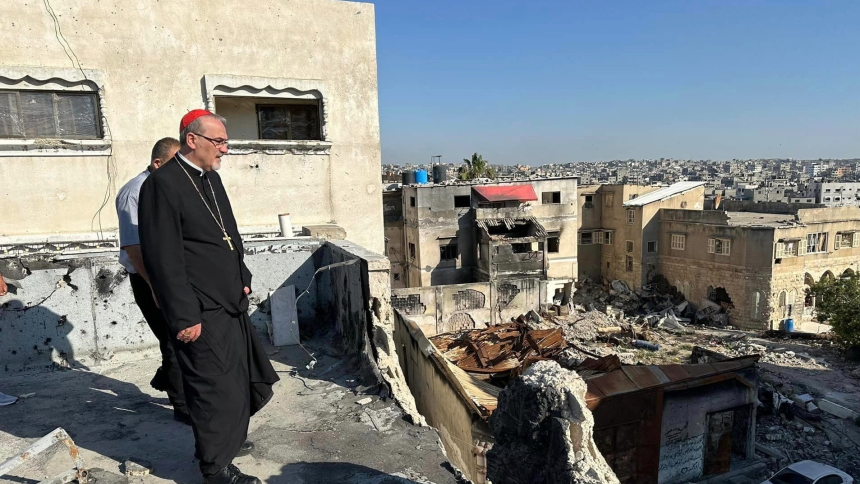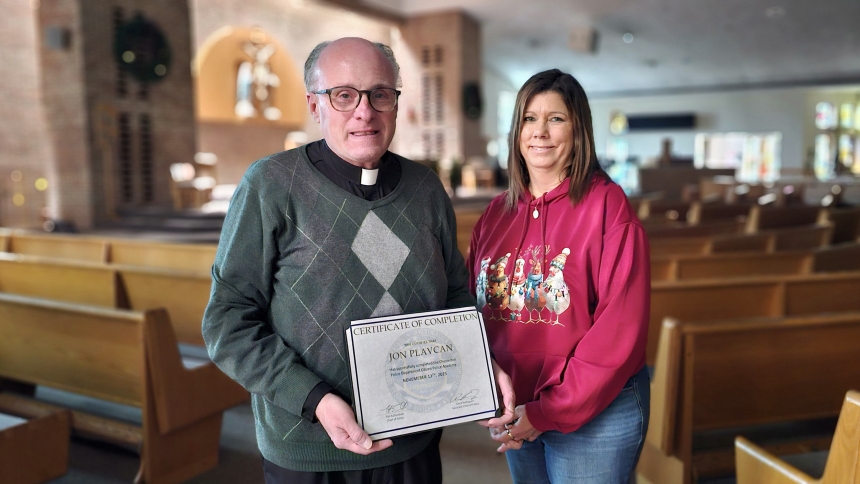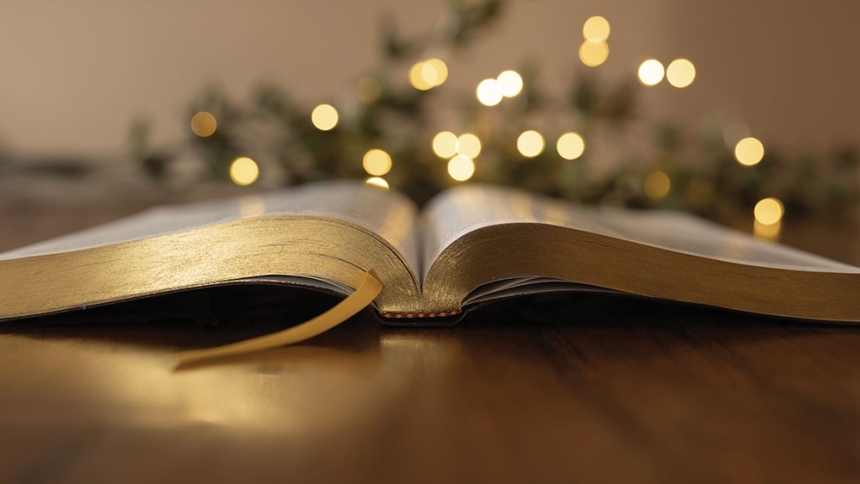
JERUSALEM (OSV News) - Cardinal Pierbattista Pizzaballa, the Latin patriarch of Jerusalem, described the small resilient community of the Holy Family Parish compound in Gaza City as one with "steadfast faith," amid horrific destruction and constant bombardment following his return from a four-day pastoral visit during Pentecost.
"Despite the everyday issues, I saw a community united, well-organized, concerned about the future. There was suffering and complaints, but there were no words of anger or resentment. This is something which should not be taken for granted. This is something positive. I really appreciated that," he said in a press conference on May 20.
Their main concern at the moment is for their children and their education, he said, having already lost an academic school year. "Inside the compound there are dozens of children but also all around is full of children. Everything is destroyed and it is very difficult to find one house (intact)."
Some people are managing to live in houses, but the buildings are in "very precarious conditions," the cardinal said, with garbage everywhere and destroyed infrastructure. Many people have nowhere to go, he highlighted.
It was his first pastoral visit - and the first visit to the Gaza Strip by a high profile Christian leader - since the outbreak of Israel-Hamas war in Gaza following the Oct. 7, 2023, Hamas attack on Israel's southern communities. The attack left 1,200 mostly civilians murdered and 254 people taken captive into Gaza, according to Israel, with over 100 people still held hostage. The subsequent Israeli military campaign into Gaza has killed more than 35,000 Palestinians, mostly children and women, according to the Hamas Gaza Ministry of Health.
The patriarch also paid a visit to the Greek Orthodox compound. "There are a lot of questions of what will be after the war," he said, calling for an end to the war.
The community in the Holy Family compound has formed itself into committees to help arrange for all the tasks that need to be done including cooking, washing, and the use of water and electricity, the patriarch said. He noted that the food situation was not as dire as in the beginning of the war, but that it was still lacking. He visited and blessed a nearby bakery owned by a Christian family that was providing bread for the parish as well as the neighbors when it could.
He said the sound of bombing and firefights were constant and the explosions often shook the ground, and while the people had seemingly gotten used to them after almost eight months of war, it was sometimes difficult for him.
The patriarch, who prior to the war went on regular pastoral visits to Holy Family Parish, said nothing was recognizable as he entered Gaza and described a perilous drive on roads to reach the church.
Though security and entrance into Gaza were coordinated with Israel, the patriarch declined to give any details of the coordination or the security taken for his entrance or exit during his May 15-19 visit.
He said the main purpose of the visit as pastor of the parish was to show his physical support to the Christian community, not only with supplies of food or money.
"I wanted to be with them and meet with all of the families," he said. "I met a community which was very tired after months of war, and who have lost everything - houses, jobs, with one or two families living in classrooms. The situation is very complicated from a humanitarian point of view."
Gaza parish priest Father Gabriel Romanelli, who was caught in Jerusalem at the outbreak of war, unable to return to his parish for the past eight months, also accompanied the patriarch and remained with his parish. Also in the small delegation was Fra' Alessandro de Franciscis, Grand Hospitaller of the Sovereign Order of Malta.
Cardinal Pizzaballa said the visit marked the first stage of a joint humanitarian mission of the Latin Patriarchate and the Sovereign Order of Malta - with which they have been in touch with since November - in collaboration with Malteser International and other partners, with the aim to deliver food and medical supplies to the people in Gaza.
The center for supply distribution and the field hospital they are planning to create would be outside the church compound and meant to provide assistance to the entire neighborhood, with whom there are good relations, the patriarch said.
Cardinal Pizzaballa said there are currently some 450 Christians and the 60 severely disabled children from the home of the sisters of the Missionaries of Charity living in the Holy Family Parish compound, while another 150 Christians and 40 Muslim families were in the Greek Orthodox compound. Some 40-50 Christian families are in southern Gaza, in Khan Yunis, and unable to reach the church compounds, he said.
While some Christians have left Gaza - there were originally over 700 sheltering in the Holy Family compound - they have left of their own initiative, said the cardinal.
In addition to the physical needs of the people the patriarch noted that they were in deep need of psychological and emotional treatment as well. A small Caritas clinic outside the compound dispenses what medicines it can, especially for skin diseases - because of lack of hygiene - and chronic diseases, but also told the delegation that the people need a lot of psychological support.
"The physical destruction can be seen, Cardinal Pizzaballa said. "But the emotional impact on the population is enormous."
The patriarch celebrated the feast of Pentecost with the parish May 19 and administered the sacrament of confirmation to two parishioners. During his homily he emphasized the need of maintaining unity among each other and the crucial role that the priests and sisters in the community have played during the past period.
He also urged the people to keep the flame of hope alive in their hearts and lives alive with the power of the Holy Spirit. He said he had assured them that, as a church, they will not abandon them, and will be among the first to help rebuild Gaza and assist its people in achieving a dignified life.
He reminded them that one of the seven gifts of the Holy Spirit is strength, which should not be confused with power.
"We don't want power but we want to be strong and I have noticed that you are certainly tired, very tired, but that you are strong," he said in his homily. "One sign is that during all my discussions with you, I have not heard a single word of anger. This is a sign of strength."
Caption: Cardinal Pierbattista Pizzaballa, the Latin patriarch of Jerusalem, walks through the ruins of buildings in Gaza City. He visited northern Gaza Strip May 16-19, 2024, during Pentecost. At a press conference May 20 following his return to Jerusalem, he said he found the small resilient community of the Holy Family Parish compound in Gaza City to have "steadfast faith" amid horrific destruction and constant bombardment. (OSV News photo/courtesy Latin Patriarchate of Jerusalem)


